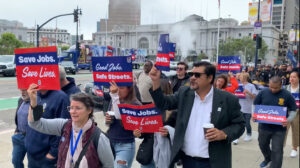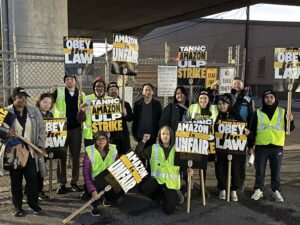Recent changes to California’s labor and employment law
March 8, 2018Here is a brief summary of the most notable new labor and employment laws and regulations that became effective on January 1, 2018:
Expansion of drugs subject to DOT testing
Those working in industries regulated by the Department of Transportation (DOT) should be aware of a new rule issued by the DOT that expands the current drug testing panel to include commonly prescribed pain medications like Vicodin and Oxycontin. These opioid-based pain medications can be obtained legally through a valid medical prescription. However, if an employee tests positive for one of these synthetic opioids, the rule requires the Medical Review Officer (MRO) to determine whether the employee has a legally valid prescription for the drug. If the employee does have a legally valid prescription, the MRO must downgrade the test from a positive to a negative and report the negative test result. It appears likely that an MRO will deem an expired prescription invalid; and, therefore, not a basis to turn the drug test from positive to negative.
Even if the positive test is downgraded to negative because of a valid medical prescription, the MRO may report the positive test to the employer; and, if in the MRO’s judgment, the employee is likely medically unqualified under the DOT regulations or if continued performance is likely to pose a significant safety risk. Prior to such reporting, the MRO must give the employee five days to allow the prescribing doctor to contact the MRO to determine if the medication can be changed to sufficiently address the safety risk.
Ban the Box (AB 1008)
The “Ban the Box” law makes it unlawful for an employer with five or more employees to include on any employment application a question that seeks the disclosure of the applicant’s conviction history or to inquire into or consider the conviction history of the applicant until that applicant has received a conditional offer. In addition, when conducting a conviction history background check, the employer may not consider, distribute, or disseminate information related to certain specified prior arrests, diversions, and convictions.
Under this law, an employer who intends to deny an applicant a position of employment because of the applicant’s conviction history is required to take certain mandated steps and provide notice to the applicant before it can reject the applicant.
Salary history prohibition (AB 168)
In an effort to address gender-based discriminatory pay practices, this law prohibits all employers, including the Legislature, the state, and local governments, from seeking salary history information about an applicant for employment and requires an employer to provide the pay scale for a position to an applicant upon reasonable request. The law does not apply to salary history information disclosable to the public pursuant to federal or state law.
Expansion of California’s Equal Pay Act to public sector employers (AB 46)
The California Equal Pay Act prohibits an employer from paying an employee wage rates less than the rates paid to employees of a different race or ethnicity or of the opposite sex for substantially similar work that requires the same skills, effort, and responsibility when performed under similar working conditions. Under AB 46, the California Equal Pay Act is expanded to include public sector employers.
Protected baby-bonding leave (SB 63)
This law extends the protections of the California Family Rights Act (CFRA) to include baby-bonding leave for employees of medium-sized employers, those with 20 or more employees. Previously, baby-bonding leave only applied to large employers with 50 or more employees. CFRA allows an employee to take up to 12 weeks of parental leave to bond with a new child within one year of the child’s birth, adoption, or foster-care placement. The Employer must maintain the employee’s health insurance coverage while taking an approved CFRA leave.
Prohibition on dissuading public employees to join a union (SB 285)
In response to the potential fallout from an anti-union decision in Janus v. AFSCME Council 31, on which the Supreme Court will hear oral arguments later this month, this law prohibits a public employer from deterring or discouraging public employees from becoming or remaining members of an employee organization. “Public employers” include counties, cities, districts, the state, schools, transit districts, the University of California, and the California State University, among others. The bill also grants the Public Employment Relations Board (“PERB”) jurisdiction over violations of its provisions.
Union access to public employee orientation, contact information (AB 119)
Also intended to address the implications of a negative ruling in Janus, this law requires public employers regulated by PERB to provide the exclusive representative of those employees mandatory access to its new employee orientations. The employer is required to provide the exclusive representatives with not less than 10-days’ notice in advance of an orientation. Employers are also required to provide the name, job title, department, work location, work, home, and personal cellular telephone numbers, personal email addresses, and home address of newly-hired employees within 30 days of hire or by the first pay period of the month following hire, and to provide that information for all employees in the bargaining unit at least every 120 days.





